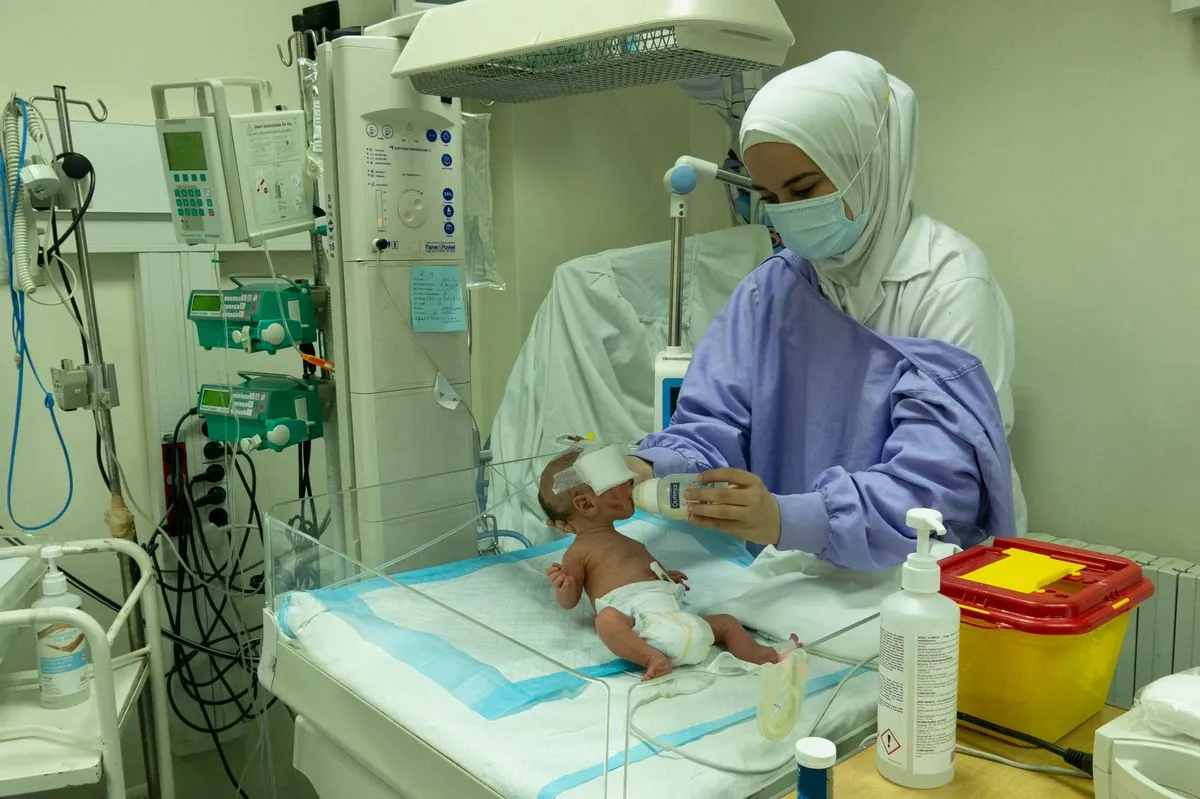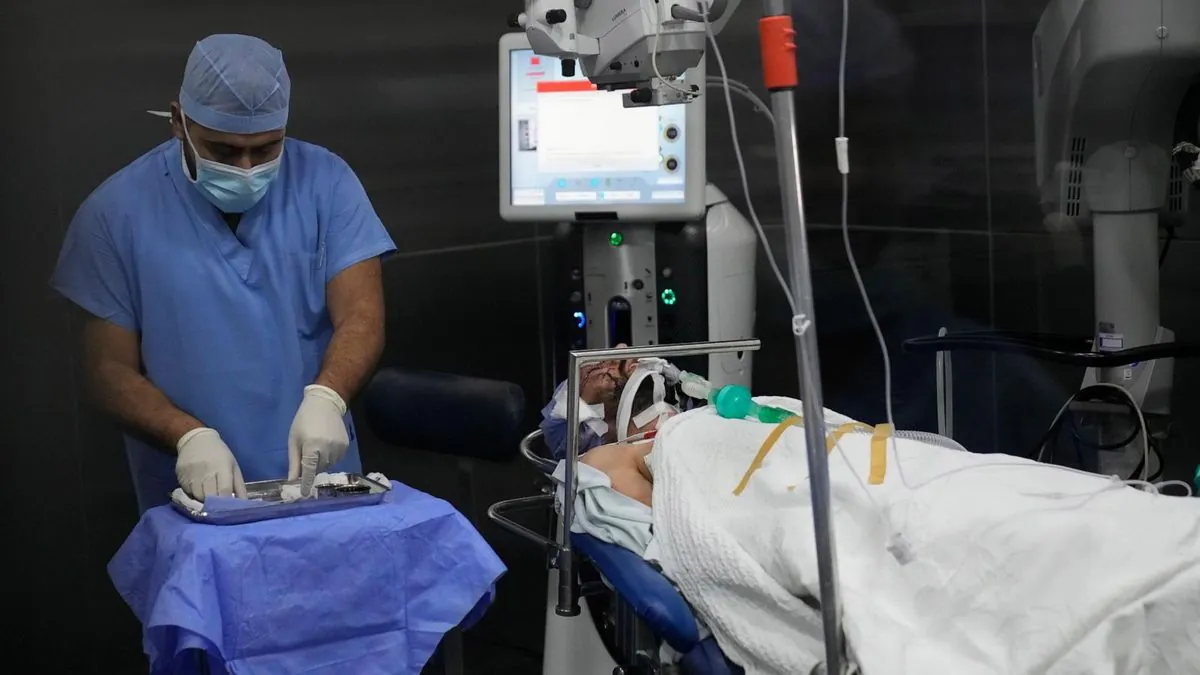Mass Device Explosions in Lebanon Cause Widespread Eye Injuries
Lebanon faces a medical crisis as thousands of Hezbollah-linked devices explode, causing numerous eye injuries. Doctors work tirelessly to save victims' sight in an unprecedented healthcare challenge.

In a tragic turn of events, Lebanon has been thrust into a medical crisis following the mass detonation of pagers and walkie-talkies across the country. This incident, which occurred in September 2024, has resulted in at least 39 fatalities and approximately 3,000 injuries, with a significant number of victims suffering severe eye trauma.
Elias Jaradeh, an ophthalmologist and lawmaker representing south Lebanon, has been working relentlessly to treat the influx of patients with eye injuries. The situation has been described as unprecedented, even for a country that has endured numerous conflicts and crises throughout its history.
"There is no doubt that what happened was extremely tragic, when you see this overwhelming number of people with eye injures arriving at the same time to the hospital, most of them young men, but also children and young women."
The devices, believed to belong to the Hezbollah militant group, exploded simultaneously, catching many victims off guard as they were looking at their screens. This has led to a disproportionate number of facial and eye injuries, with some patients losing their sight permanently.
Lebanon, a country with a rich history spanning over 5,000 years, has faced numerous challenges in recent times. The healthcare system, already strained by economic difficulties and political instability since 2019, is now grappling with this new crisis. Despite these obstacles, Lebanon's medical professionals are demonstrating remarkable resilience, a trait symbolized by the cedar tree on the nation's flag.
The incident has drawn comparisons to the devastating Beirut port explosion of August 2020, which killed over 200 people and injured more than 6,000. However, medical professionals note that the current crisis presents unique challenges due to the specific nature and volume of eye injuries.
While Israel is suspected of involvement in the device detonations, no official confirmation has been made. This incident adds to the complex history of conflicts between Lebanon and Israel, including the major war in 2006.
As Lebanon confronts this latest tragedy, the country's diverse population of approximately 5.5 million, including the highest proportion of Christians in the Middle East, must once again demonstrate its resilience. The nation's unique power-sharing system based on confessionalism faces yet another test in managing the aftermath of this crisis.

Despite the overwhelming challenges, Lebanon's renowned education system and strong tradition of press freedom may prove valuable in addressing the long-term impacts of this event. As the country works to heal, its rich cultural heritage, including its internationally recognized cuisine and literary contributions, serves as a reminder of the nation's enduring spirit in the face of adversity.
The medical community continues to work tirelessly, with doctors like Jaradeh pushing themselves to the limit to save as many patients' eyesight as possible. Their efforts underscore the strength and dedication of Lebanon's healthcare professionals, who have long been considered among the best in the Arab world.
As Lebanon navigates this latest crisis, the international community watches closely, recognizing the broader implications for regional stability and the ongoing challenges faced by this small but significant Mediterranean nation.


































